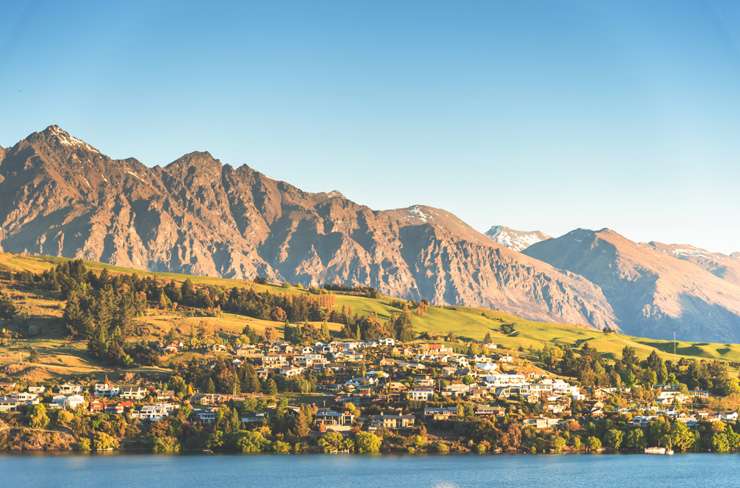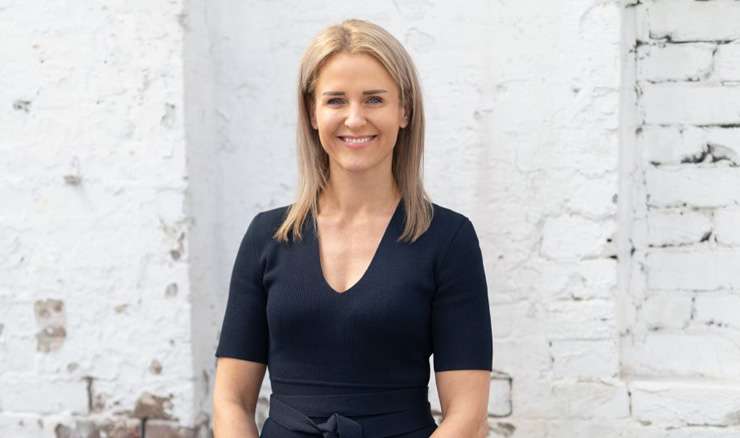The National Party has promised to overturn the foreign buyer ban for some homes if it wins the election in October.
National made the pledge this morning as the announced details of their tax policies.
The ban was brought in by Labour in 2018 after international buyers were perceived to be snapping up homes ahead of local buyers.
National said it would introduce a 15% foreign buyer tax on purchase of houses worth over $2 million, which it said would raise $740m a year in tax revenue. The party would keep the ban in place for homes valued less than $2m.
Start your property search
Data analysis by OneRoof and Valcoity shows just 5% of residential properties in New Zealand are valued at $2m or above. The local authority with the highest percentage of homes that could be bought by foreign buyers under National's plan is Queenstown-Lakes, with 29% of all residential stock falling into the higher price bracket. Auckland has the highest number of $2m-plus properties while West Coast has the fewest - just one.
The research also shows just how $2m-plus sales there have been in New Zealand in the last two years. Of the 133,170 settled sales since August 2021, just 7177, or 5.3%, have been for $2m-plus, with again Auckland accounting for the bulk of higher-value transactions.
Hamish Walker, director of the newly established Walker and Co Realty, based in Queenstown, told OneRoof after the announcement that National tax policies were "good news for Queenstown and a relief for many in the high end construction sector".
Walker, a former National MP who now specialises in selling high-end real estate and has brokered $80m of property deals, said the pledge would lead to more enquiries from overseas for Queenstown homes.
"I have buyers looking to buy high end luxury property here and was in Singapore meeting buyers only a few weeks ago," he said, adding that foreign buyers were unlikely to be competing with Kiwis for homes.
"It’s a completely different market. Our country is much better off giving them the opportunity to buy higher end homes here."
"I was selling a property last year that would have sold a number of times over if Americans were allowed to buy it. The price tag was well north of $30m. New Zealanders just aren’t in this market."
He added: "I had clients in my office just last week who said they would be happy to pay some sort of tax if they were allowed to buy high-end homes."
Ross Hawkins, who deals in high-end properties for Ray White, also welcomed the announcement, which he said addressed earlier concerns that overturning the ban would make it harder for first-home buyers to get on the property ladder.
He didn't think the policy would lead to a surge in house prices if implemented. "I don't think it will have a dramatic effect on [property] values, but over time it will probably help restore the [property] values people lost over the pandemic period."
He said he had buyers who would love to set themselves up long-term in New Zealand. "Even though we've had economic trauma, we are still the safe haven at the bottom of the South Pacific that people want to set themselves up to a long-term future, and that opens the doors to that," he said.
Queenstown-based independent economist Benje Patterson told OneRoof that allowing foreign buyers to purchase properties worth more than $2m could put pressure on the upper end of the market but it certainly wouldn'y impact the general housing market.
"They [foreign buyers] will be outside that price bracket that the largest volume of homes by far are transacting in."
Infometrics principal economist Brad Olsen said the tax policy had managed to remove part of the ban in a segment of the market that didn't concern general New Zealanders, while also reaping some revenue rewards.
"For a lot of the property market that's not going to affect the majority of people who are looking to buy a family home or even an investment home. Almost none of them are going to be playing in the $2m plus target."
Chris Farhi, head of insights at Bayleys, told OneRoof the policy would lead to extra demand at the upper end of the market but it wouldn't be "over the top".
Read more:
- Mortgage anxiety intensifies: How Kiwi borrowers got caught out by rates shift
- $1 reserve triumph: ‘Worst house on the best street’ sells for $510,000
- Tony Alexander: FOMO's back - why Auckland is primed to lead the next house price surge
Overseas markets were calmer at the moment and countries such as China had put in rules about capital going offshore, he said.
Foreign buyers were likely to be looking at markets that have more expensive houses, such as central Auckland, North Shore, Queenstown-Lakes and some of Christchurch's high-end suburbs.
Farhi says there could also be some interesting activity around the $2m threshold where sellers might try their luck and price a $1.995m house at just over $2m to attract the overseas buyers group.
"Whether or not it transacts at that level will just depend on where the local vs the foreign interest is, but I would say we would see some tactical stuff like that."

National leader Christopher Luxon, left, with the party’s housing spokesman Chris Bishop. The party has pledged to introduce a tax on house purchases by foreign buyers. Photo / Dean Purcell

Queenstown has been a popular place for overseas buyers in the past. Photo / Getty Images
Ray White economist Nerida Conisbee told OneRoof last month that New Zealand could use foreign buyers to its advantage by restricting them to only buying new properties to rent out as that would increase the supply of rentals, and it could also kickstart bigger projects.
“Historically, foreign buyers have provided enough of these initial sales which has not only increased the amount of rental properties but also increased total housing stock. Greater supply of housing makes housing more affordable so this is also a positive.”
But allowing foreign buyers to buy existing properties was less positive, she said, as many look at the price of a property in New Zealand and compare it to their own market only to find New Zealand is favourable.
“For example, a purchaser from London may see Auckland as particularly affordable and hence pay more for a property than a local buyer. They may also have more to spend if they have sold in a high-priced market and are looking to buy somewhere cheaper in New Zealand."
Conisbee had recommended National "use foreign buyers to make it cheaper and easier for New Zealanders to buy and rent”.
John Greenwood, a recreational real estate specialist with Bayleys, told OneRoof last month that the high-end recreational market had “died” since the ban and those wealthy overseas buyers had gone elsewhere. “I know there are several in Mexico, Portugal, France. They're buying in other beautiful places in the world because the governments there don't mind them spending their money.”

Ray White chief economist Nerida Conisbee says opening up New Zealand’s housing market to overseas buyers could benefit the market if done right. Photo / Supplied
They would come back if the ban was overturned, he said, because New Zealand was a beautiful country. Greenwood said he had a database of offshore potential buyers who like to stay informed.
These are the sorts of buyers for whom $5m-plus is a drop in the bucket: “Most of them are high net worth individuals looking for something sexy,” he said.
New Zealand Sotheby’s International Realty managing director Mark Harris, who is based in Queenstown, agreed it’s the $5m-plus market that would be impacted most. “In the higher end I think that's where the demand will come, from your wealthy international Americans and UK and Asian market.”
There could be an impact on prices in the higher end markets around the country, such as Waiheke Island, some of the pricey Auckland properties, and in other areas like the Bay of Islands, and parts of Tauranga and Nelson.
“I think the interest is still there in New Zealand as a place to buy property, that's for sure. I wouldn't say we had a queue lining up but we'd like to see that rule reflected upon and simplified,” he says.
“I just think we're turning our back on foreign investment, which at the moment with the economy the way it is not what we want to be doing.”
- Click here to find properties for sale











































































